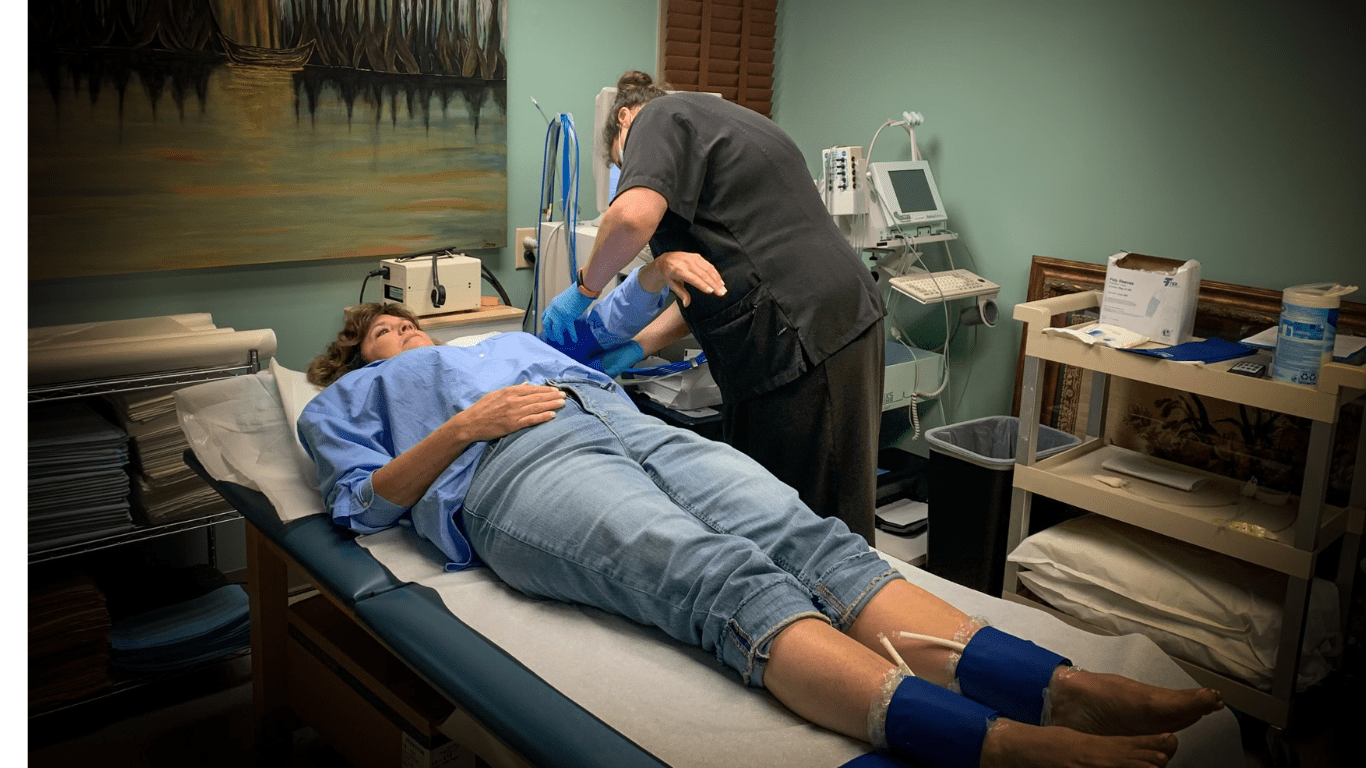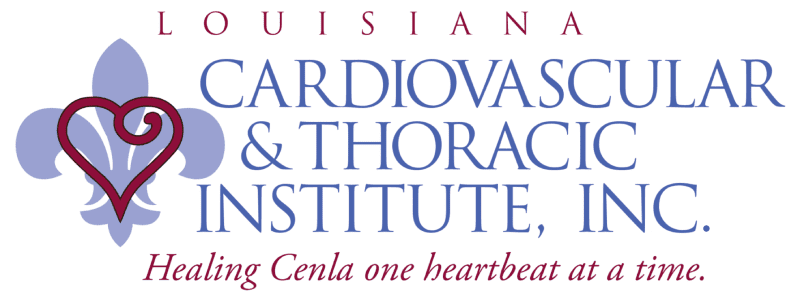Vascular Lab & Clinic
Learn more about the many services we offer.The following are conditions that fall under the category of vascular disease.
Carotid Artery Disease
Carotid artery disease occurs when fatty deposits (plaques) clog the blood vessels that deliver blood to your brain and head (carotid arteries). The blockage increases your risk of stroke, a medical emergency that occurs when the blood supply to the brain is interrupted or seriously reduced.
Peripheral Arterial Disease
Peripheral Arterial DiseasePeripheral Arterial Disease (PAD) develops when the arteries in the legs build up plaque, obstructing and narrowing the arteries and preventing blood, oxygen, glucose from flowing properly to tissue. This lack of blood-flow causes pain, cramping, and swelling in the legs as the muscles and tissue starve for blood and if untreated, can lead to amputation of the toes and/or foot.
Deep Venous Thrombosis (DVT)
Deep Venous Thrombosis (DVT) A DVT is the formation of a blood clot (thrombus) in the deep veins, most commonly occurring in the legs. This thrombus disrupts the normal flow of blood from the legs or arms back to the heart. The clot could move to your heart or lungs causing serious and sometimes fatal complications. A suspected DVT must be diagnosed and treated immediately.
Chronic Venous Insufficiency
Chronic Venous insufficiency (or peripheral venous disease) is a condition in which the valves inside the veins cannot close completely as they help to guide blood back towards the heart. When the valves fail, blood flows in both directions causing swelling, pooling of blood, skin discoloration, and bulging of the veins under the skin.
Varicose Veins
Closely related to chronic venous insufficiency, varicose veins are enlarged veins that are visible through the skin. The veins often appear bulging or twisted and are generally larger than three millimeters in diameter. Varicose veins affect one out of two people over the age of 50, and women who have had children are particularly susceptible.
Non-healing Ulcers
Non-healing wounds are often caused by problems with the circulation in the arteries or veins. Wounds around the foot and heel may result from the build-up of plaque in the arteries stopping blood from reaching the area that needs healing. Similarly, the swelling and backwards flow of blood in the veins cause intense pressure on the skin leading to wounds on the legs and ankles.

Vascular Lab & Clinic With Experts
At Louisiana Cardiovascular & Thoracic Institute’s Vascular Diagnostic Lab, our expertise, state-of-the-art technology, and service-minded approach encourages physicians throughout the central Louisiana region to refer to us with confidence. We understand that when your patient has a potentially serious cardiovascular health problem, time is of the essence. That’s why we make accessibility and service our top priorities. To that end, we offer the following:
- Quick scheduling, within days after your referral
- Flexible appointment times your patients will appreciate
- Fast turnaround on a report of findings – within 24 hours via fax
Our lab is home to the latest in diagnostic ultrasound imaging. We’ve invested in advanced technology that provides premium image quality across grayscale, color Doppler, power Doppler and pulsed Doppler applications. This includes the following:
- Carotid ultrasound
- Aortic ultrasound
- Arterial ultrasound
- Peripheral arterial disease
- Thoracic outlet syndrome
- Graft surveillance
- Venous ultrasound for the upper and lower extremities
- Deep Vein Thrombosis – DVT
- Venous Reflux
- Vein mapping for fistula placement
- Ankle Brachial indices
- Segmental Pressures
- Allen’s testing
- Carotid screening for stroke risk
- Aortic screening for abdominal aortic aneurysm
- ABI screening for PVD
- Thyroid for abnormal masses
We are also home to the first program in Central Louisiana that aids sonographers 30+ years of experience. LACVT was the home of the first vascular education program in Central Louisiana.
